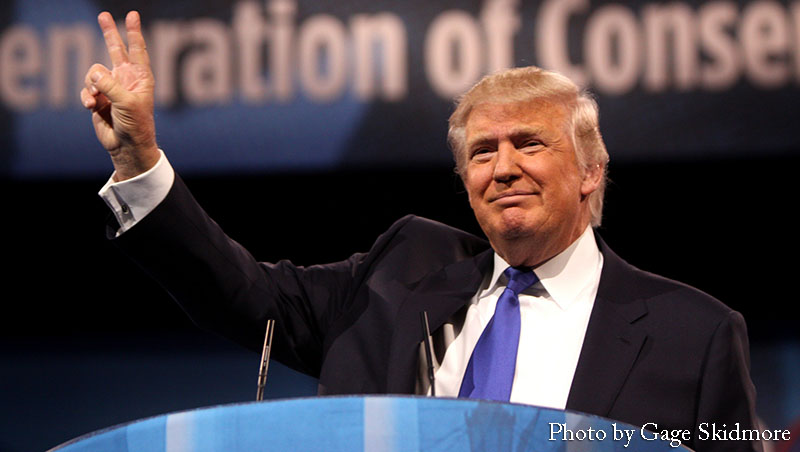
How does one explain the meteoric rise of American businessman Donald J Trump from political outsider to nominee for the United States presidency? While pundits have pointed to economic and demographic reasons, Professor Ian Shapiro, the Sterling Professor of Political Science at Yale University in the US, believes there is one critically underestimated factor: The way in which the US's major political parties select their candidates for office. At an evening talk organised by the Lee Kuan Yew School of Public Policy on August 5, 2016, titled The Long Term Impact of Trump on the Evolution of American Democracy, Prof Shapiro said: The conventional story is that the elimination of jobs through technology, the offshoring of jobs and the logic of capitalism that produces super-wealthy people at the top have combined to create an angry class of people who are downwardly mobile, and Trump speaks to this inchoate rage which cause the rise of populism in America. This story of democracy in America is incomplete, Prof Shapiro believes. He argued that Mr Trump's ascent can, in fact, be traced to a fateful decision made almost 50 years ago.
Changing the rules
In 1968, the US Democratic Party's convention to select its presidential nominee had ended in shambles. The party had held primary contests in some states for members to cast their votes for the candidates, but the results were meaningless. Two candidates opposed to the US's involvement in the Vietnam War had together garnered more than two-thirds of the votes, but a third candidate, Vice President Hubert Humphrey, who had not participated in any primaries, was selected by the party's elders as the nominee. The convention was a train-wreck and there were riots in the streets, said Prof Shapiro. The complaint of the rioters was that the party was run in smoke-filled rooms and that had to change to adhere to the principles of democracy in America. Bowing to pressure, the Democratic Party amended its rules, creating its modern primary system where candidates compete for votes to become the party's presidential nominee. The Republican Party followed suit, although its system had some differences.
Unintended consequences
Today, in both parties, this has become hugely important. You have to be able to win the primaries and caucuses to become the candidate. But there are several problems with this. One is that the primaries and caucuses tend to be dominated by activists who have intense preferences, and they are not the preferences of the median voter, said Prof Shapiro. To win their party's nomination, candidates often have to embrace more extreme policy positions to win the activists' votes. But the winners then have to pivot in the general election to win the middle ground. They cannot deliver what they promised and are perceived as sell-outs, even though the system forces them to be that way, Prof Shapiro said. As this pattern repeats over time, political gridlock ensues as elected officials are afraid to compromise for fear of losing their next election. Disillusionment with politicians also sets in, paving the way for a political outsider with extreme views, such as Mr Trump, to seize the day and pave the way for a New World Order.
A return to form?
Prof Shapiro advocates a return to the centralised selection of candidates for office, or the introduction of more superdelegates in intra-party elections. These are currently a group of elected officials, activists and others whose votes have an outsized influence on the Democratic presidential nomination race. The decentralised selection of candidates for political office is a very bad idea, and it's a deeply misguided conception of democracy, said Prof Shapiro. What makes democracy work in America is inter-party competition, not intra-party competition. Since the vast majority of political seats in the US are safe seats held by either party, the only meaningful competition is within the intra-party primaries, and that has produced all of the governance problems.
On 5 August 2016, Professor Ian Shapiro, Sterling Professor of Political Science and Henry R Luce Director of the MacMillan Center at Yale University in the United States, gave an evening talk titled The Long Term Impact of Trump on the Evolution of American Democracy. Prof Shapiro is a fellow of the American Academy of Arts and Sciences and a member of the Council on Foreign Relations. His most recent books include The Real World of Democratic Theory and Containment: Rebuilding a Strategy against Global Terror. His new book, Politics Against Domination, will be published by Harvard University Press in 2016.